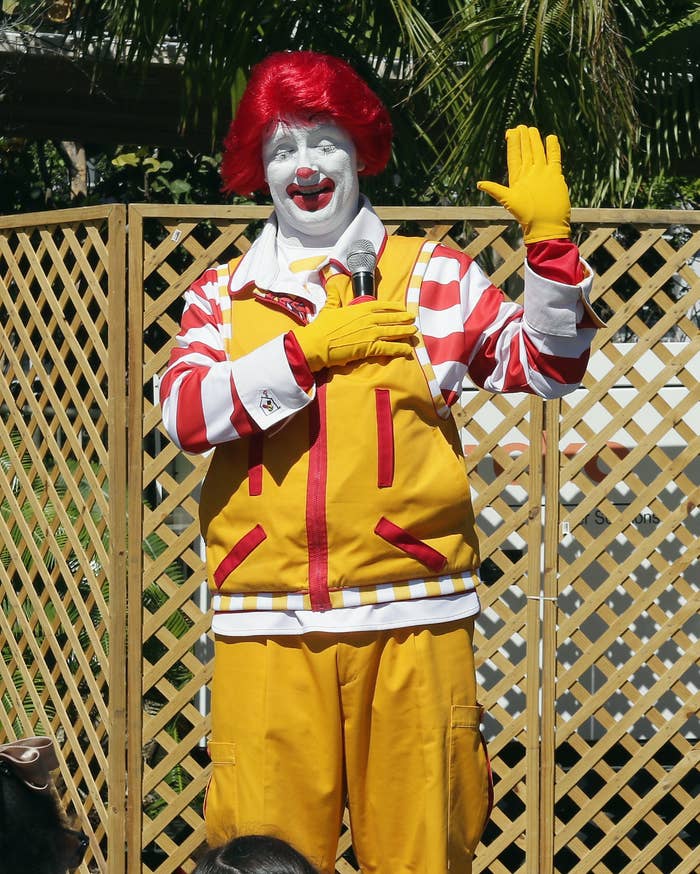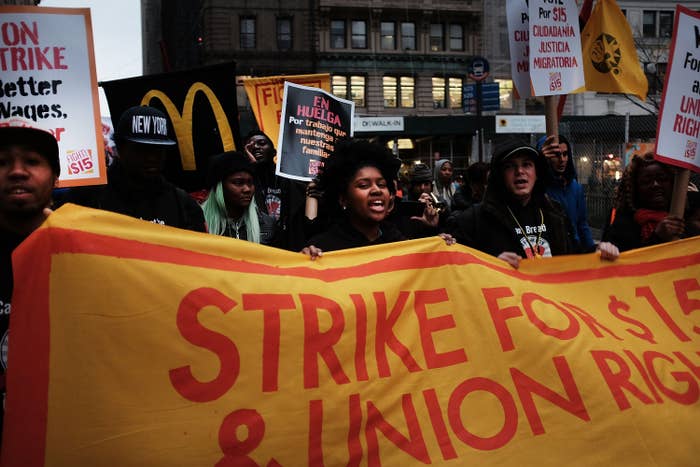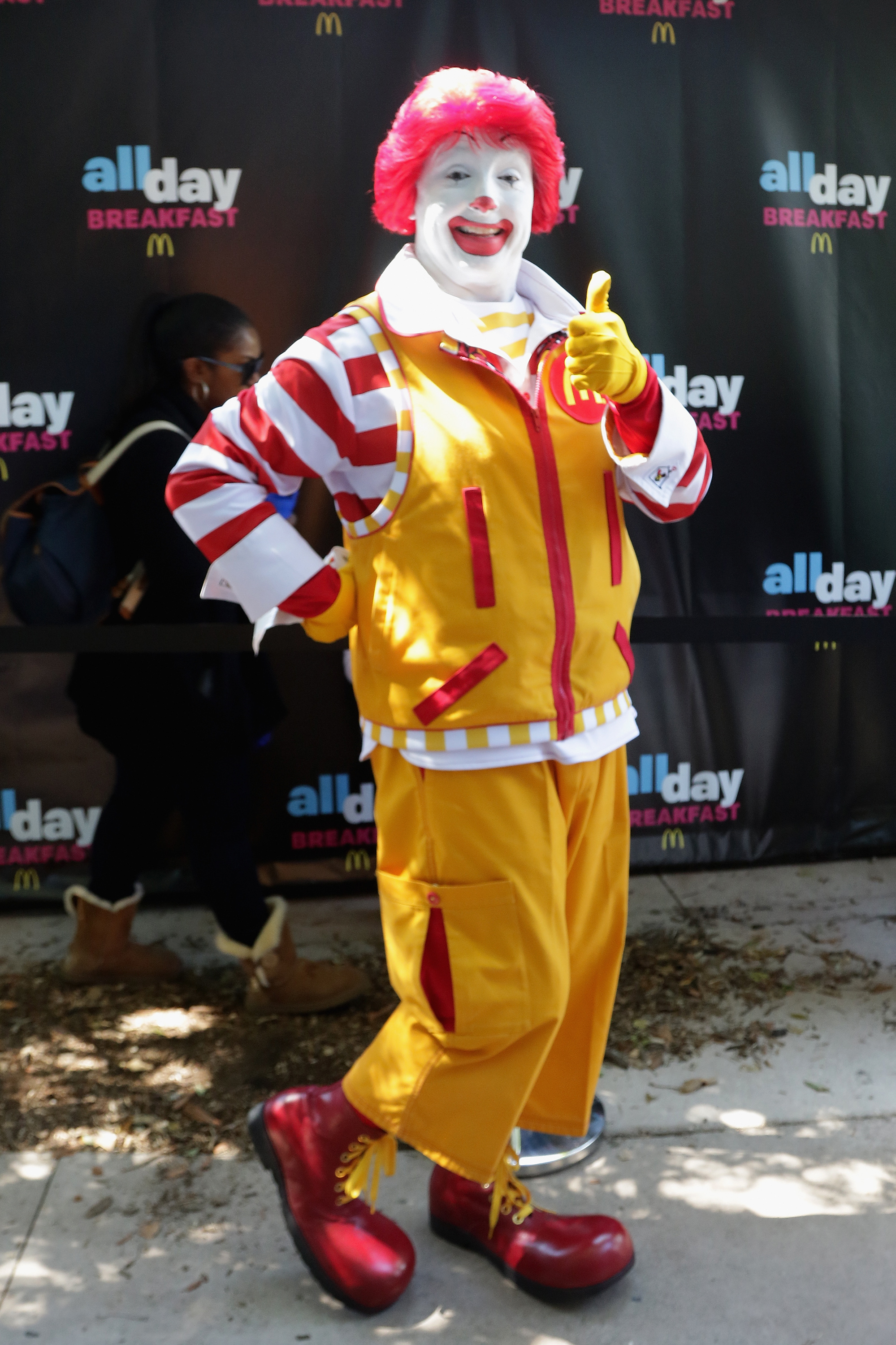
In courtroom 238 in New York’s Federal Plaza this week, McDonald's executives testified publicly for the first time about shop-floor and top-level operations of their global franchise operation.
The legal case against the company, now being heard before the National Labor Relations Board (NLRB), could upend the existing fast-food franchise model for all casual chains in the United States. McJobs are having their day in court.
What's specifically at stake: whether McDonald's is responsible for labor conditions at restaurants that bear its name.
Since 2012, cooks and cashiers at the burger chain have protested for better pay and working conditions, while filing hundreds of charges of unfair labor practices before the country's highest labor board.

The workers say they experienced illegal retaliation — firings or discriminatory treatment by managers — as a result of the strikes and walkouts. The Service Employees International Union, the country's largest union for service workers, helped prepare the charges and pay the workers' legal fees.
Now the labor board's lawyers argue that McDonald's USA is equally liable — with franchise operators — for the alleged retaliation. The company denies responsibility, its lawyers arguing that McDonald's does not substantially control the day-to-day of line cooks, cashiers, and drive-through workers.
But if the board's arguments win the day — or the months, as the trial is likely to stretch on — low-wage, first-rung workers could potentially unionize and bargain collectively with McDonald's as a result. That could in turn set precedent for the approximately 4.7 million people who work serving food and beverages in the United States to leapfrog franchise owners and negotiate with corporations themselves.

On Wednesday, McDonald’s USA’s vice-president of U.S. franchising, Troy Brethauer, took the stand for his third day of testimony. He fielded questions on his familiarity with store-level layouts and alleged retaliation against workers.
Brethauer denied, as he did in previous testimony, granular knowledge of on-the-ground operations, saying he had not seen floor plans of stores, nor was he personally involved in the hiring, firing, or decision-making related to specific store employees.
The NLRB's general counsel has requested about 350 documents and business records from the company and has a long list of witnesses still to call, as the trial will move to two other cities before returning to New York for McDonald's HQ to argue its defense.
Beyond the trial, fast-food workers continue to strike and march, most recently outside the Republican and Democratic debates. Thanks to the prompting of the protesters, the candidates, too, have been answering tough questions about wage and hour standards in low-wage jobs in America.
